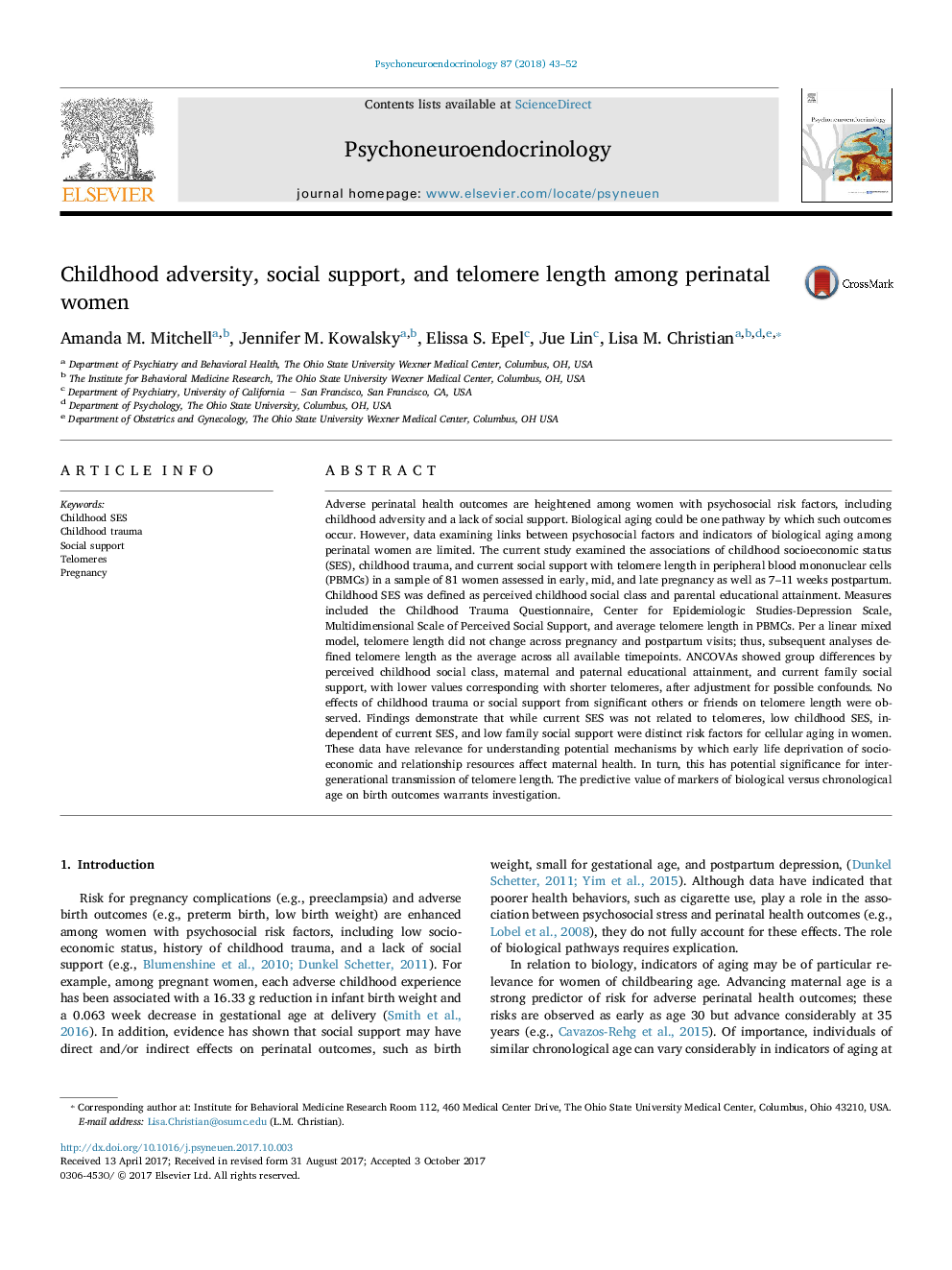ترجمه فارسی عنوان مقاله
ناتوانی دوران کودکی، حمایت اجتماعی و طول تلومر در زنان پرناتال
عنوان انگلیسی
Childhood adversity, social support, and telomere length among perinatal women
| کد مقاله | سال انتشار | تعداد صفحات مقاله انگلیسی |
|---|---|---|
| 130639 | 2018 | 10 صفحه PDF |
منبع

Publisher : Elsevier - Science Direct (الزویر - ساینس دایرکت)
Journal : Psychoneuroendocrinology, Volume 87, January 2018, Pages 43-52

